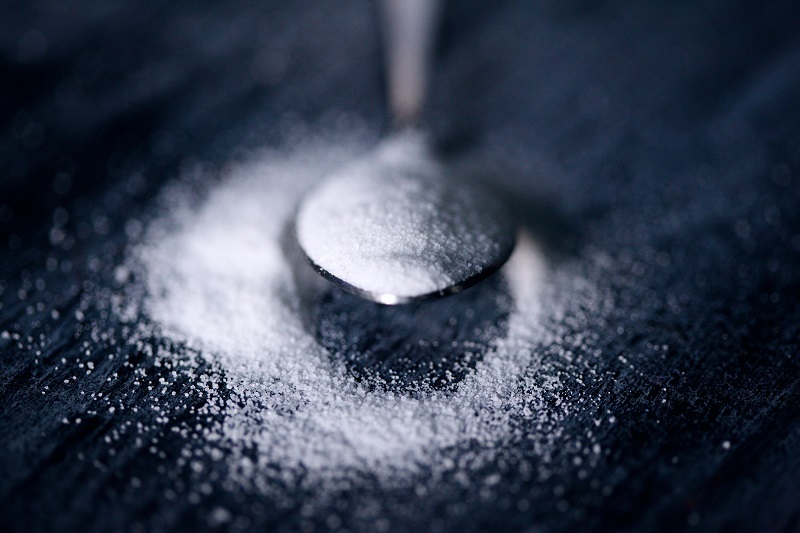Some people like their coffee plain and black, while others prefer it with milk and sugar— both options are equally as good. But for those who like to indulge in coffee sweeteners, there are now much healthier options available in the supermarkets and online. Gone are the days of using “plain sugar,” because there are tons of alternatives up for grabs.
Keep on reading to discover the 12 best sweeteners for coffee, and choose which one is the perfect fit for you, from the most commonly-used down to the more recently-released.
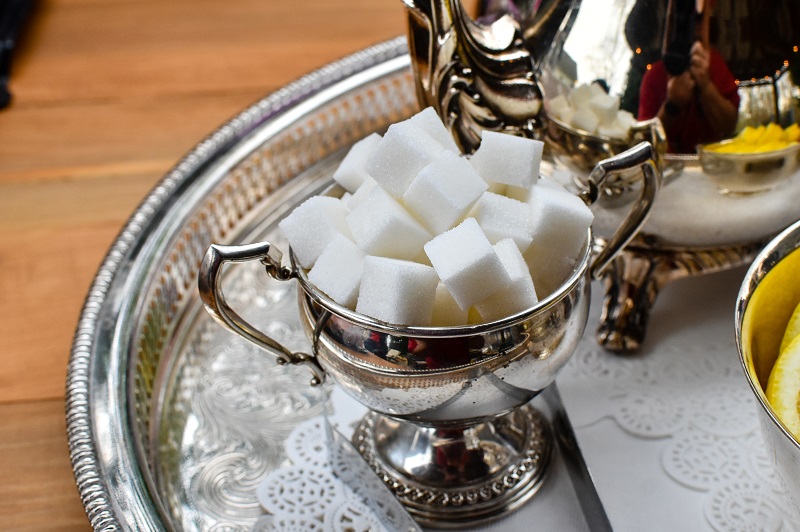
Most Common Sweeteners for Coffee
Refined White Sugar
This is probably the most popular of all kinds of coffee sweeteners, and is most commonly extracted from sugar beets or sugar cane. We use plain refined sugar for tons of things aside from sweetening our coffee, which is also why this is one of the most common sweeteners worldwide. It is also one of the cheapest options, which is why it’s so common in diners, cafes, restaurants, and even our own homes.
However, aside from the sweetness it adds to your beverage, refined white sugar is pretty bland & bad for you. It does help balance out the bitterness somewhat, but it doesn’t really help in enhancing the taste of coffee. And at 16 calories a teaspoon, it’s generally not worth the payoff.
Unrefined Cane Sugar (Raw Sugar)
This variety of cane sugar goes through less of a refining process, so it maintains the majority of the cane grass’s original molasses content. Unlike brown sugar, which just has the molasses added back in at the end, unrefined cane sugar retains its molasses content throughout processing. The color ranges from light to dark brown, and it comes in different forms, but most often packed tightly and then bagged. One of the most common types of unrefined cane sugar is panela, which is processed without a centrifuge, giving it a more unrefined taste.
Another is jaggery, a type more commonly found in Southeast Asia and parts of Africa, which holds a notable amount of molasses thanks to its low level of processing. In terms of enhancing the taste of coffee, unrefined cane sugar generally does a better job because it has a more complex flavor and unique aroma. On the other hand, while unrefined coffee sweeteners do contain a bit more nutrients compared to their counterparts, they still both fall under the less healthy category.
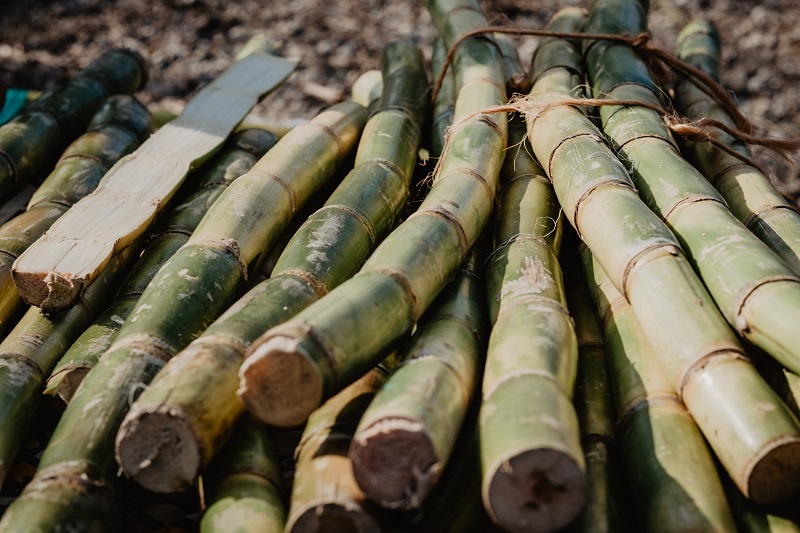
Honey
Honey in coffee is a classic combination for a reason. Some think that honey is much more unhealthy than other coffee sweeteners because it’s higher in calories, but that’s just one side of the story. Compared 1:1 to sugar, honey actually tastes sweeter so you’ll need a smaller amount, though it is processed faster by our bodies. On top of that, honey has a lot of health benefits, including a high antioxidant content and antibiotic properties that are good for the gut.
Molasses
Molasses has a distinct color, viscosity, and flavor; it goes well with coffee, but leaves a tangy aftertaste that can be too strong for first-time tasters. It is a liquid sweetener with a dark brown to black color, so dark that there’s a very common type of molasses known as blackstrap molasses. If you sweeten your coffee with molasses, consider adding a creamer of some kind to balance it with.
Molasses may not be as sweet as regular sugar, but it has a stronger flavor that produces a more robust taste to pair with fruitier roast that need a deeper caramel note to round them out. Note that the type that comes from sugar cane is generally more suited for coffee, while the type made from sugar beets has an active bitter taste and should be avoided.
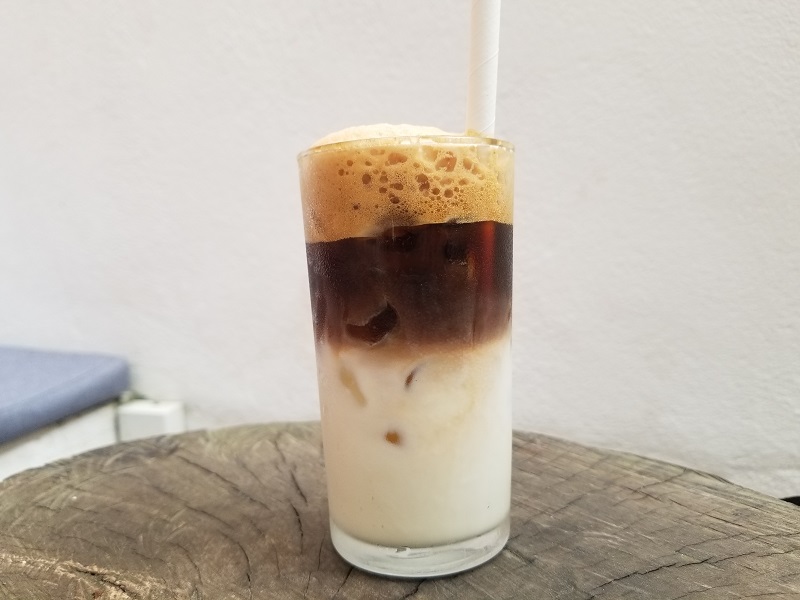
Sugar-Free Sweeteners for Coffee
Stevia
First up in this category is Stevia. With zero calories, Stevia is one of the best coffee sweeteners for diabetics and those who are on a diet. It comes from the Stevia plant, which grows abundantly in its native South America. Known to be 300 times sweeter than table sugar, a small amount of powdered or liquid stevia goes a long way in sweetening a cup of coffee, though some people perceive it to have a slight licorice aftertaste. Stevia is normally associated with Tuvia, which is the brand name you may see on grocery shelves— Tuvia is just a bit more processed, but it stems from the same plant.
Monk Fruit Extract
Monk fruit (luo han guo) extract has been used for medicinal purposes for thousands of years, and now it has become famous around the world as a substitute sweetener for coffee and other beverages. It’s named ‘monk fruit’ because it has been cultivated for millennia by monks in Southern China, where it originates, though it also grows abundantly in Thailand, where much of the world’s supply is grown.
The fruit’s popularity is thanks to the fact that it’s 200 times sweeter than table sugar, so a small quantity is enough to sweeten almost anything. This unusual quality is due to the fruit’s high concentration of mogroside, which is an antioxidant that highly enhances its sweetening capabilities with no effect upon blood sugar. Most monk fruit is sold in a blend with other sweeteners, in order to make them 1:1 replacements for sugar, so be sure you’re buying 100% pure monk fruit powder.
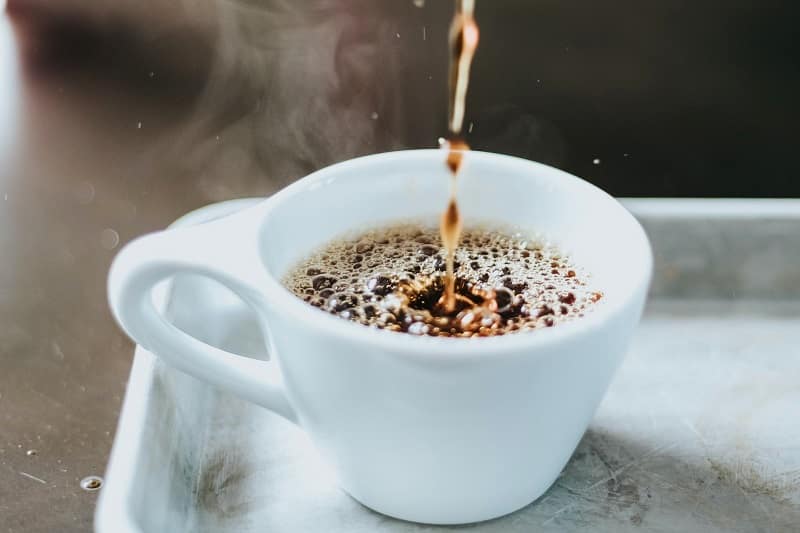
Sugar Alcohols
Another one of the healthiest sweeteners for coffee is sugar alcohols, such as erythritol. Sugar alcohols are substances produced from the fermentation of a carbohydrate; they taste quite sweet, so they can be used as a sugar substitute. I know they may sound intimidating, but sugar alcohols are very common in sugar-free baked goods and beverages because they contain no calories. The main complaint from some people is that large amounts of sugar alcohols make their stomachs hurt, but don’t have more than one serving in a sitting and you’ll be fine. Other kinds of sugar alcohols are xylitol and mannitol, which are also diabetic sweeteners for coffee.
Splenda
You’ve probably seen your grandma’s kitchen cabinet filled with Splenda, because this is one of the most popular sugar-free sweeteners for coffee across the globe. It is an artificial sweetener that comes in several different varieties and flavors, but all are zero-sugar, and many people swear it helped them stop using sugar in their coffee altogether. It does the work of sweetening your coffee without compromising the taste, but there are also mixed reviews in studies as to whether Splenda is linked to higher cancer risk.
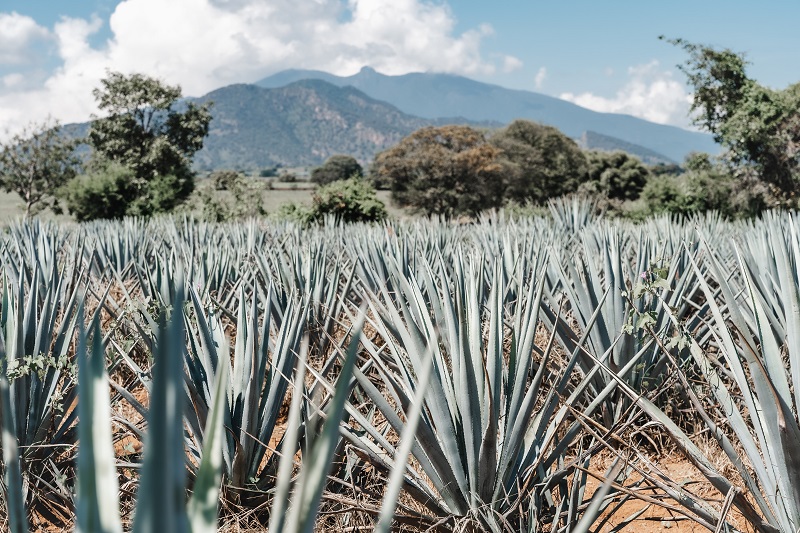
Natural Sweeteners for Coffee
Agave
Agave nectar or Agave syrup comes from a species of cactus-like blue agave plants that are predominant in Mexico. Its consistency and color are similar to honey, but it has a mild caramel taste that is perfect for a strong espresso shot. With its thin consistency, it mixes well in both hot and cold coffee with a few stirs. Health-wise it has a low glycemic index, making it suitable for diabetics, but it should still be taken in moderation because it has a high fructose level.
Maple Syrup
That’s right, maple syrup isn’t just for pancakes; it’s for coffee too! Well, real 100% maple syrup is, at least. This pick is one of the tastiest coffee sweeteners you can try if you’re a fan of that fall flavor, but don’t want the pain of paying for a PSL. It does the sweetening job without sacrificing any health benefits, because maple syrup is rich in both antioxidants and potassium. However, you must be careful with the artificial maple syrups on the market, because they can have high sugar contents with none of the maple-y goodness. To get the best maple syrup for coffee, you need to make sure that it’s certified Grade A, and look for the official seal.
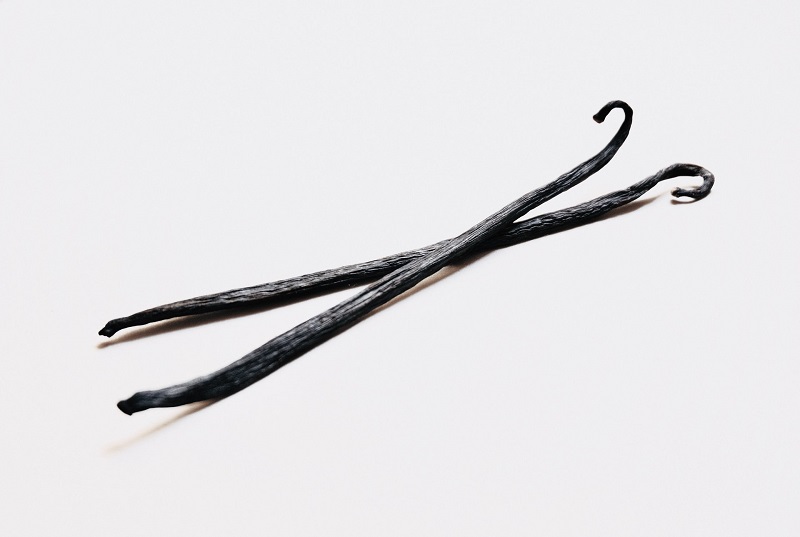
Vanilla Beans
We often hear of vanilla extract as a baking ingredient, but because of its aromatic effect it’s now been grouped with other sweeteners for coffee. This substitute is a natural sweetener that’s low in calories, and aside from its sweetening use, vanilla has other benefits you may not notice at first. These include its calming effect, natural complexity, and complement to coffee’s inherent bitterness.
Coconut Sugar
Coconut sugar has a distinctively earthy taste mixed with a caramel essence, a quality I’ve personally dubbed ‘toasty.’ The granulated form is produced by evaporating the moisture from the sap of the coconut palm flower, and can be used at a ratio of 1:1 in coffee, but coconut sugar syrup has a similar effect. This type of coffee sweetener offers a very unique array of vitamins and minerals, giving your coffee a different kick this morning, with its caramel effect.
Whether you’re making homemade coffee or buying it from your favorite coffee shop, now you know that you have plenty of coffee sweeteners to choose from. So next time, don’t hesitate to add a little sweetness to your cup.
